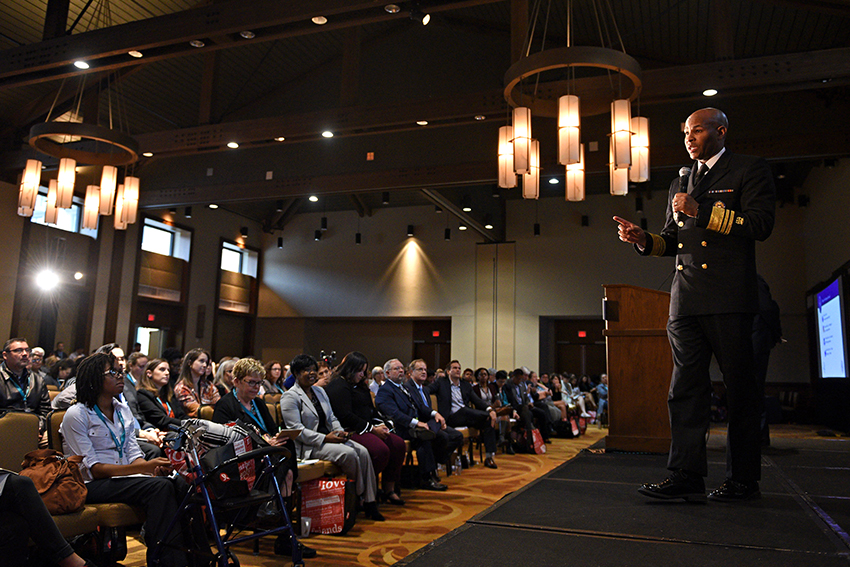Marguerite Kelly’s grandson was 17 years old when he had a felony placed on his record. On the night of his arrest, he said good night to his parents before grabbing his younger cousin and smashing the window of a 7/11 convenience store to steal new pods for his JUUL vaping device. Her grandson is now serving a two-year sentence at a juvenile detention facility, and his record will display a federal criminal charge.
“He was a child,” Kelly said. “His future is ruined because of what the nicotine in those JUULs did to his mind.”
Kelly was one of several attendees at the Healthier Texas Summit, a conference for health professionals to discuss solutions to healthcare problems affecting people all over the state. Industry leaders, public policy advocates and health professionals came together at the AT&T Executive Education and Conference Center on Oct. 25 and 26 to address pressing issues such as obesity, mental health and electronic cigarettes.
The “Youth E-Cigarette Prevention: Rapid Response” event where Kelly shared her story was one of several panel discussions held during the event. Steve Kelder, a professor of epidemiology at the UT School of Public Health, described a need for new prevention strategies for e-cigarette use by adolescents.
“My father smoked four packs of cigarettes a day, and if he was alive today, I would absolutely prefer that he smoke e-cigarettes,” he said. “While they aren’t nearly as harmful as combustible cigarettes, they aren’t completely harmless like kids today seem to think.”
Kelder described e-cigarettes as high dose nicotine delivery devices, citing a 2017 graph showing that single JUUL pods, which deliver four times the amount of nicotine permissible by the European Union, are sold without restriction in Texas. He says that nicotine is a highly addictive drug which can cause several undesirable changes in brain chemistry to growing brains and can lead to abuse of more dangerous drugs.
Jennifer Leigh, Director of Corporate and Social Philanthropy at CVS Pharmacy, represented the company at the conference and spoke about their decision to stop selling nicotine products.
“You can’t be calling yourself a healthcare company and sell a product which kills millions of people,” Leigh said. “E-cigarettes might not give you lung cancer, but they are affecting young people today in several ways, and because of this, we will never sell an e-cigarette in a CVS store.”
Part of CVS’ strategy for dealing with e-cigarettes is pouring funding into nonprofit outreach groups, such as CATCH Global Foundation, founded by CEO Duncan Van Dusen. The group works to start initiatives in primary and secondary schools to combat public health problems. Van Dusen collaborated with Kelder to design a curriculum called CATCH My Breath, which is used to teach middle school students about the dangers of e-cigarettes.
Van Dusen said he acknowledges that e-cigarette education will not start at the federal level, but from community outreach. Van Dusen said that he realizes it’s difficult to control the use of a product which adolescents are more knowledgeable about and comfortable with than adults.
The program aims to educate teachers, parents and students through presentations, speeches and conversations. Van Dusen said he hopes that students will become comfortable enough to ask authority figures questions about things they see their peers doing to help them make informed decisions.
Towards the end of his presentation, Kelder posed a question to the audience.
“I’m not saying that we should demonize e-cigarettes. ‘Skull-and-crossbones’ isn’t the right approach here,” Kelder said. “But, with a show of hands, who wants their child to become a nicotine addict?”
No hands went up.















